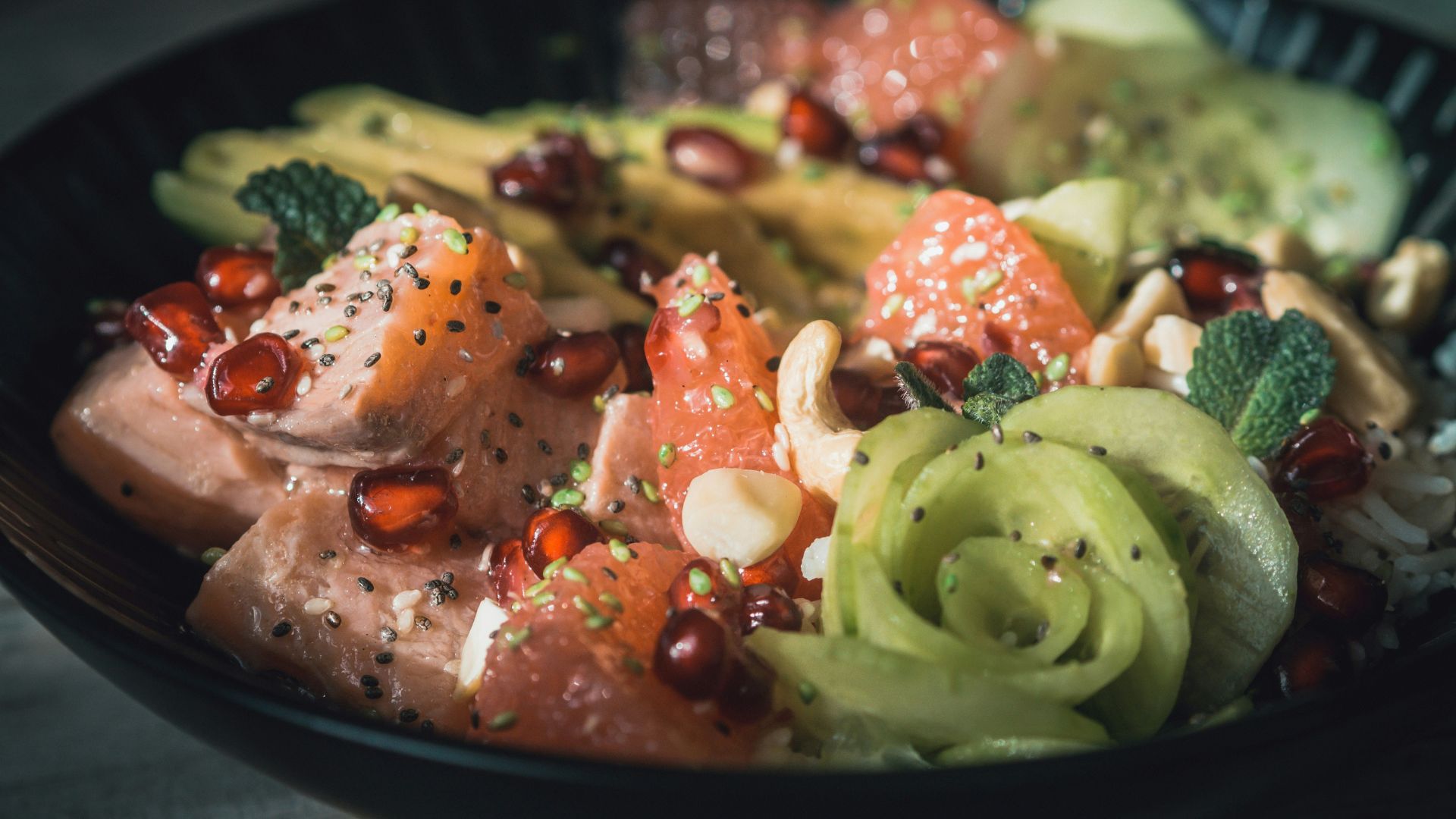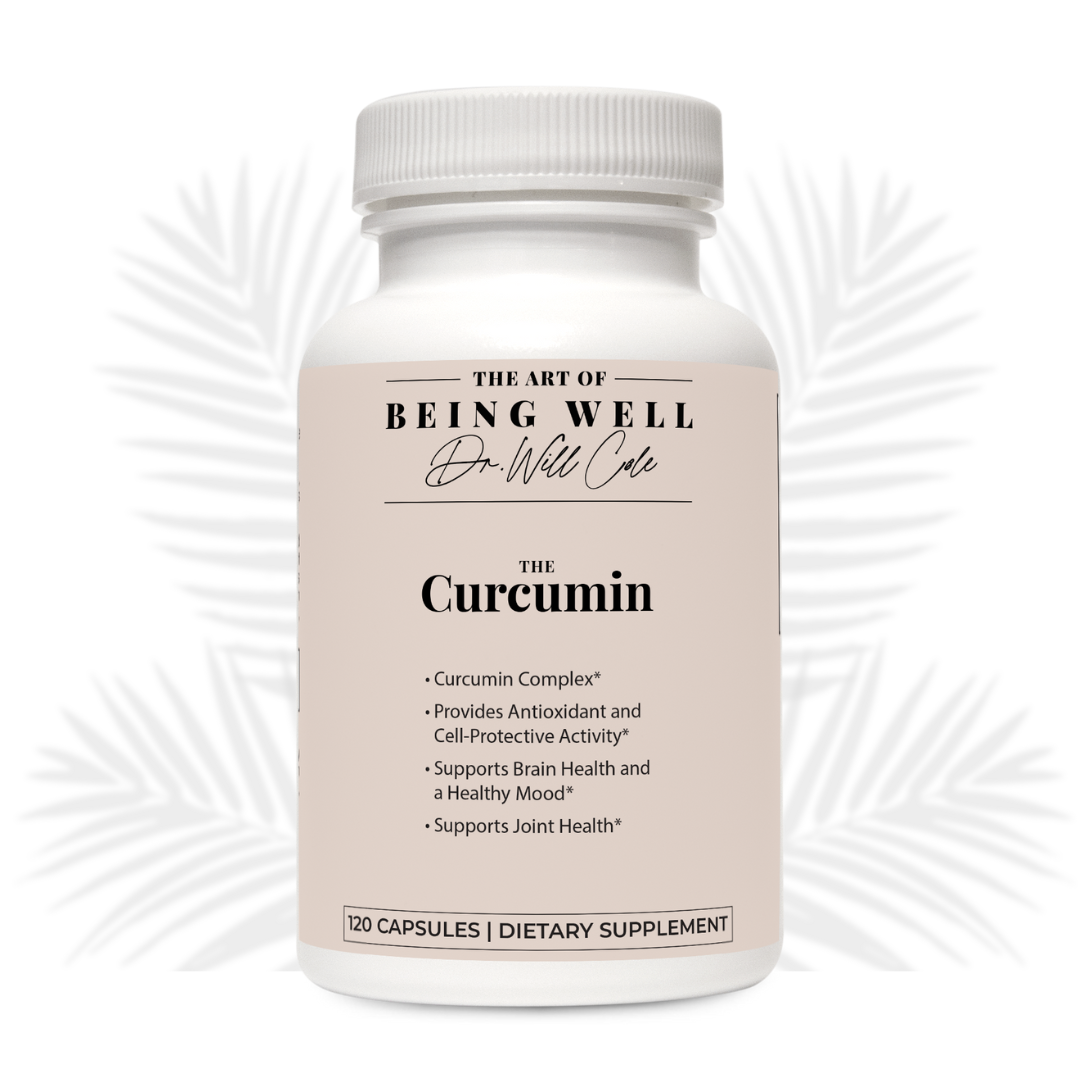Your Guide to the Anti-Inflammatory Diet

Inflammation is behind just about every health concern you can think of, from chronic illnesses like rheumatoid arthritis, IBS, IBD, type 2 diabetes, Alzheimer’s disease, and heart disease to ongoing symptoms like fatigue, brain fog, depression, and digestive issues.
So there’s a reason I talk about inflammation so often. The thing is, we have more control over excess inflammation than we may think.
What you eat is one of the biggest factors in determining how inflamed you are. Virtually every food you consume is going to either contribute to inflammation or combat it. And eating an anti-inflammatory diet can help to prevent the risk of cognitive decline and chronic diseases of all kinds.
But what are we really talking about when we talk about an anti-inflammatory diet? What should you eat, what shouldn’t you eat, and are there any tips and tricks for making it even more effective?
We’ll explore all of these questions and more in this guide to an anti-inflammatory diet.
Let’s start with the things that you should include. Eating to reduce inflammation doesn’t have to feel restrictive, and there are tons of delicious anti-inflammatory foods on the menu.
But first, a caveat: one of the most important components to consider when planning your anti-inflammatory diet is your own individuality. I’ll get into this a bit more further down. Just keep in mind that we all have our own food triggers.
If you come across a food that is listed as anti-inflammatory but you know you don’t feel well when you eat it, listen to what your body is telling you. What’s inflammatory for you might not be for somebody else. This is why it’s so important to follow your body’s cues as you fine-tune your own personal eating plan.
1. Fruits, Veggies, And Leafy Greens
Generally speaking, fruits and vegetables are anti-inflammatory, and boast tons of additional health benefits. Try to include a wide variety of fruits and vegetables in your diet, as they all have different combinations of nutrients – the more you can take in, the better!
For example, cruciferous vegetables like broccoli and cauliflower can help to improve methylation, and antioxidant-rich fruits like blueberries and pomegranates can help to reduce oxidative stress and cellular damage that can stem from toxin exposure.
Dark, leafy greens like kale, spinach, and collards are also among the best choices to be on regular rotation. These greens are absolutely packed with antioxidants and polyphenols, plant compounds that help to fight inflammation, as well as several important vitamins and minerals.
Other great anti-inflammatory fruits and vegetables include:
For bonus points, explore eating seasonally, focusing on produce that grows naturally near you at different times of the year.
2. Omega-3 Fatty Acids
I’m a huge fan of healthy fats. Omega-3 fatty acids like DHA and EPA have been shown to reduce inflammation by inhibiting the production of proinflammatory cytokines like IL-6 and boosting the production of compounds that fight inflammation. (1, 2) They’re also crucial for supporting brain health, metabolism, heart health, and overall well-being.
Great sources of anti-inflammatory omega-3 fatty acids include:
3. Anti-Inflammatory Beverages
What you drink matters, too! And there happen to be tons of great options for anti-inflammatory juices, smoothies, teas, and other beverages that you can sip on throughout the day. Here are a few ideas:
I have a collection of delicious anti-inflammatory smoothie recipes here that you can check out for more inspiration (and juice recipes here!).
LISTEN: Danielle Walker: Your Guide To Healthy Meal Prep & Autoimmune Healing Pro-Tips
4. Gut-Healthy Foods
One of the best things you can do to reduce chronic inflammation overall is to support your gut. Imbalances in the gut microbiome, leaky gut, and other GI issues contribute to inflammation and imbalances throughout the body.
All of the foods we’ve already talked about are great for supporting gut health overall. But you can take things a step further by incorporating probiotic and prebiotic foods into your diet.
Probiotic foods are those that naturally contain live, beneficial bacteria, and prebiotic foods are those that help to feed the good bacteria in your gut.
When it comes to probiotic foods (and drinks), you’re looking for things that have been fermented. A few options include:
Many high-fiber foods are great natural sources of prebiotics. Again, keeping in mind bio-individuality, some of these foods can be difficult to tolerate for some people (for example, some high-fiber foods are high in FODMAPs, which can be challenging for those with SIBO or IBS).
Here are a few of the most powerful prebiotic foods:
Other anti-inflammatory foods that help to support gut health include ginger and turmeric.
Find your unique food triggers and reset your system with the help of my book, The Inflammation Spectrum.
5. Supplements
Food comes first, but adding in a few strategic, anti-inflammatory supplements can really help to take your healing and wellness to the next level.
For example, consider adding in a good quality fish oil for an extra boost of omega-3 fatty acids. Curcumin is another great choice. Curcumin is the active compound found in the cooking spice turmeric, but its anti-inflammatory effects are so powerful that it’s often worth adding in a supplement.
Vitamin C, vitamin D, and resveratrol can also help to keep inflammation at bay. Remember that you can’t supplement your way out of a bad diet or lifestyle, but you can supercharge your healthy eating and living plan with well-chosen supplements.
Inflammatory Foods To Avoid
You can eat all of the leafy greens you want, but if you’re also loading up on sugar, processed foods, and refined carbohydrates, you’re probably going to find yourself in an inflammatory state more often than not.
Here are some of the most inflammatory foods to avoid:
Again, it’s important to remember that different people react differently to different foods. The ones listed above are pretty much inflammatory for everybody. But depending on your individual sensitivities and any current health conditions, you may also find certain other foods, such as eggs, nightshade vegetables, fermented foods, nuts and seeds, legumes, or high FODMAP foods like garlic and onions to be inflammatory. Always pay attention to how you feel when you eat something.
Specific Diets To Consider
There isn’t one specific anti-inflammatory diet that works for everyone, but many people do find it helpful to follow a general dietary template, especially if you’re just starting out with making changes to your eating habits.
A lot of people use the Mediterranean diet as a template for anti-inflammatory eating, and while it has a lot going for it (especially compared to a Standard American Diet), the Mediterranean diet allows whole grains which I have found to be inflammatory for most of my patients.
Other anti-inflammatory diet options may include:
Some of these diets are specialized to help with certain conditions or food intolerances, and probably don’t need to be a starting point.
I developed a mostly plant-based eating plan that provides the anti-inflammatory, energy-boosting, metabolism enhancing benefits of a keto diet without being so heavy on meat and dairy. You can learn all about it and get started with my book Ketotarian.
Start With An Elimination Diet
To really pinpoint the foods that make you feel your best (and those that don’t), one of the best things you can do is to follow an elimination diet. You can use any of the above diets (or a different one) as a template for your elimination diet.
Whichever diet you choose, you’ll follow the same general steps:
Embracing An Anti-Inflammatory Lifestyle
Reducing inflammation isn’t just about the foods you eat. To feel your best, I recommend embracing a complete anti-inflammatory lifestyle.
Here are a few ideas for habits and practices that can help to lower inflammation:
READ NEXT: The 14 Best Herbs For Intestinal Inflammation
Understanding Your Personal Inflammation Triggers
While there are a lot of principles we can all follow, it can be challenging to unpack your personal inflammatory triggers. At our functional medicine telehealth clinic, we work with people from all over the world to create customized plans and protocols that target individual needs, goals, and triggers.
As one of the first functional medicine telehealth clinics in the world, we provide webcam health consultations for people around the globe.
View More At Our Store
Purchase personally curated supplements
and Dr. Will Cole’s books!

- Kavyani, Z., Musazadeh, V., Fathi, S., Faghfouri, A. H., Dehghan, P., & Sarmadi, B. (2022). Efficacy of the omega-3 fatty acids supplementation on inflammatory biomarkers: An umbrella meta-analysis. International Immunopharmacology, 111, 109104.
- Guo, Y., Ma, B., Li, X., Hui, H., Zhou, Y., Li, N., & Xie, X. (2023). n-3 PUFA can reduce IL-6 and TNF levels in patients with cancer. British Journal of Nutrition, 129(1), 54-65.
The information on this website has not been evaluated by the Food & Drug Administration or any other medical body. We do not aim to diagnose, treat, cure or prevent any illness or disease. Information is shared for educational purposes only. You must consult your doctor before acting on any content on this website, especially if you are pregnant, nursing, taking medication, or have a medical condition.
Our content may include products that have been independently chosen and recommended by Dr. Will Cole and our editors. If you purchase something mentioned in this article, we may earn a small commission.

BY DR. WILL COLE
Dr. Will Cole, DNM, IFMCP, DC is a leading functional medicine expert who consults people around the globe, starting one of the first functional medicine telehealth centers in the world. Named one of the top 50 functional and integrative doctors in the nation, Dr. Will Cole provides a functional medicine approach for thyroid issues, autoimmune conditions, hormonal imbalances, digestive disorders, and brain problems. He is also the host of the popular The Art of Being Well podcast and the New York Times bestselling author of Intuitive Fasting, Ketotarian, Gut Feelings, and The Inflammation Spectrum.

Gut Feelings
Healing The Shame-Fueled Relationship
Between What You Eat And How You Feel

